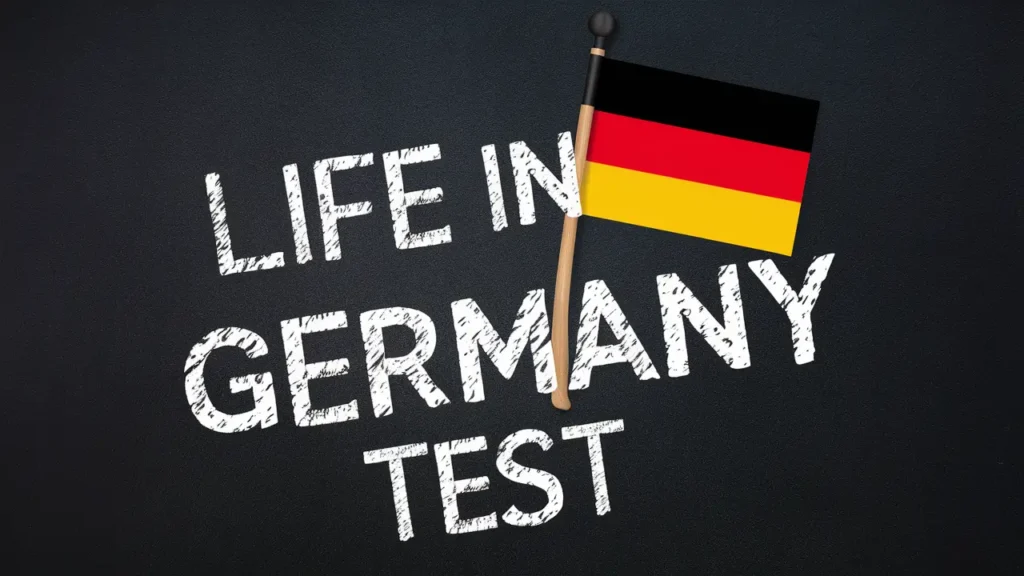For those who have recently acquired German citizenship, one of the most significant rights bestowed upon them is the ability to participate fully in the democratic process. Voting rights after German citizenship represent not just a privilege but a cornerstone of civic engagement in one of Europe’s most influential nations.
The journey to German citizenship has been streamlined by recent legislative changes, making it more accessible for long-term residents and their descendants. As of 2023, the new German citizenship law has introduced reforms that reflect Germany’s commitment to integration and diversity. These changes have paved the way for more individuals to become full-fledged members of German society, complete with the power to shape the nation’s future through their votes.
Let’s delve into the intricacies of voting rights after German citizenship and explore how new citizens can exercise this fundamental democratic right.
The Significance of Voting Rights
Voting rights after German citizenship extend beyond mere ballot-casting; they embody the essence of democratic participation. New citizens gain the ability to influence local, state, and federal elections, referendums, and various forms of direct democracy. This power to affect change ranges from selecting city council members to choosing representatives in the Bundestag, Germany’s federal parliament.
This hierarchical structure of German democracy ensures that citizens have a say in decisions that affect their daily lives, from local infrastructure projects to national policies. The right to vote at these various levels empowers new citizens to actively shape the communities they now call home.
Exercising Voting Rights after German Naturalization
Upon obtaining German citizenship, individuals automatically receive the right to vote in all German elections, provided they meet the age requirement of 18 years. However, the practicalities of exercising these voting rights after German citizenship require some understanding of the German electoral system.
- Voter Registration: Unlike some countries, Germany does not require separate voter registration. The local municipality (Gemeinde) automatically registers all eligible voters based on their residence registration (Anmeldung). This streamlined process ensures that new citizens can participate in elections without additional bureaucratic hurdles.
- Election Notifications: Prior to each election, registered voters receive a notification card (Wahlbenachrichtigung) by mail. This card contains crucial information about the upcoming election, including the date, polling station location, and voting hours.
- Voting Methods: German elections typically offer two primary methods of voting:
- In-person voting at designated polling stations
- Postal voting (Briefwahl) for those unable to vote in person
- Understanding Ballots: German ballots can be complex, especially in federal elections where voters often cast two votes – one for a direct candidate and another for a party list. New citizens should familiarize themselves with the voting system to ensure their votes are cast effectively.
This sample ballot shows the German dual voting system. The left column (Erststimme) is for direct candidates. The right column (Zweitstimme) is for party lists. New citizens need to understand this system. It helps them make informed choices and use their voting rights fully.
The Impact of the New German Citizenship Law
The recent changes to German citizenship law have significant implications for voting rights. The new legislation, which came into effect in 2023, has made it easier for long-term residents and their children to obtain German citizenship. This reform not only acknowledges the contributions of immigrants to German society but also expands the electorate, potentially reshaping the political landscape.
Key changes in the law that affect voting rights after German citizenship include:
- Reduced Residency Requirements: The standard residency period required for naturalization has been reduced from eight to five years. For individuals demonstrating exceptional integration, this can be further reduced to three years.
- Dual Citizenship Acceptance: The new law allows for dual citizenship, eliminating the need for individuals to renounce their original citizenship when becoming German citizens. This change removes a significant barrier that previously deterred many from seeking German citizenship and, consequently, from gaining voting rights.
- Simplified Process for Children of Immigrants: Children born in Germany to foreign parents can now acquire German citizenship more easily if at least one parent has been a legal resident for five years. This change will create a new generation of German citizens with full voting rights from birth.
- Language Proficiency Flexibility: While language proficiency remains a requirement, the new law provides more flexibility in how this can be demonstrated, making it easier for long-term residents to qualify for citizenship and subsequent voting rights.
These changes are expected to increase the number of naturalized German citizens. This will expand the pool of eligible voters. The broader electorate could significantly impact German politics. It might influence policy on immigration, integration, economic, and social issues.
Responsibilities Accompanying Voting Rights
While voting rights after German citizenship offer exciting opportunities for civic engagement, they also come with responsibilities. New citizens are expected to:
- Stay Informed: Keeping abreast of political issues, party platforms, and candidate positions is crucial for making informed decisions at the ballot box.
- Participate Actively: Beyond voting, citizens are encouraged to engage in public discourse, attend town halls, and participate in local community initiatives.
- Respect Democratic Processes: Understanding and adhering to election laws and procedures is essential for maintaining the integrity of the democratic system.
- Promote Integration: New citizens often play a vital role in bridging diverse communities and fostering social cohesion through their unique perspectives and experiences.
Challenges and Opportunities
The extension of voting rights after German citizenship is not without its challenges. Newly naturalized citizens may face hurdles such as:
- Language Barriers: While language proficiency is a requirement for citizenship, understanding complex political issues in German can still be challenging for some.
- Cultural Differences: Political systems and voting practices may differ significantly from those in a new citizen’s country of origin, requiring a period of adjustment.
- Information Accessibility: Ensuring equal access to political information for all citizens, regardless of background, remains an ongoing challenge.
However, these challenges also present opportunities for enriching German democracy. The diverse perspectives brought by new citizens can:
- Broaden political discourse
- Bring attention to previously overlooked issues
- Enhance Germany’s ability to address global challenges through a more internationally informed citizenry
Looking to the Future
As Germany becomes more diverse and multicultural, voting rights for new citizens will gain importance. Integrating new voices into democracy can energize public debate and policy making. This may lead to more inclusive and representative governance.
For new German citizens, voting is both a privilege and a responsibility. It allows them to shape their adopted homeland’s future. By voting, they contribute to the development of Germany’s democracy. Casting their ballots also helps renew and strengthen German democracy.
In conclusion, voting rights for German citizens are more than a legal entitlement. They promise full participation in shaping Germany’s future. As Germany welcomes its diverse population, expanding voting rights shows its commitment to democratic values. For new citizens, the ballot box is a powerful tool for civic engagement and societal change.




